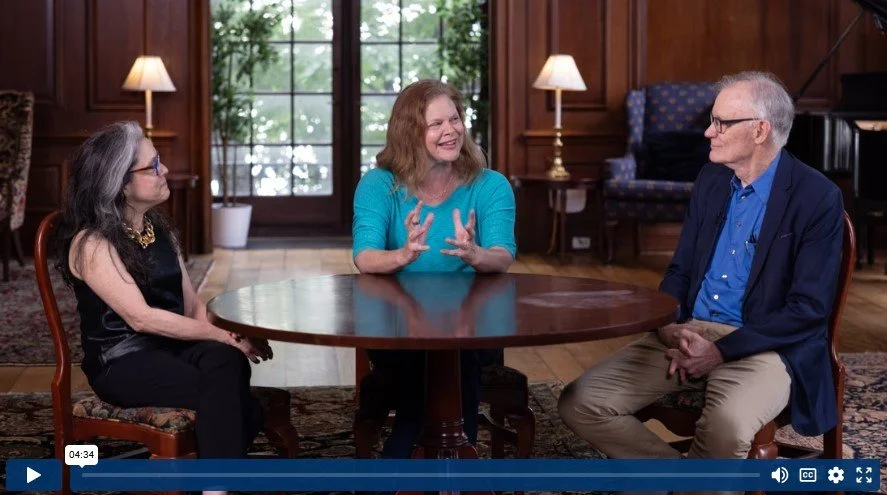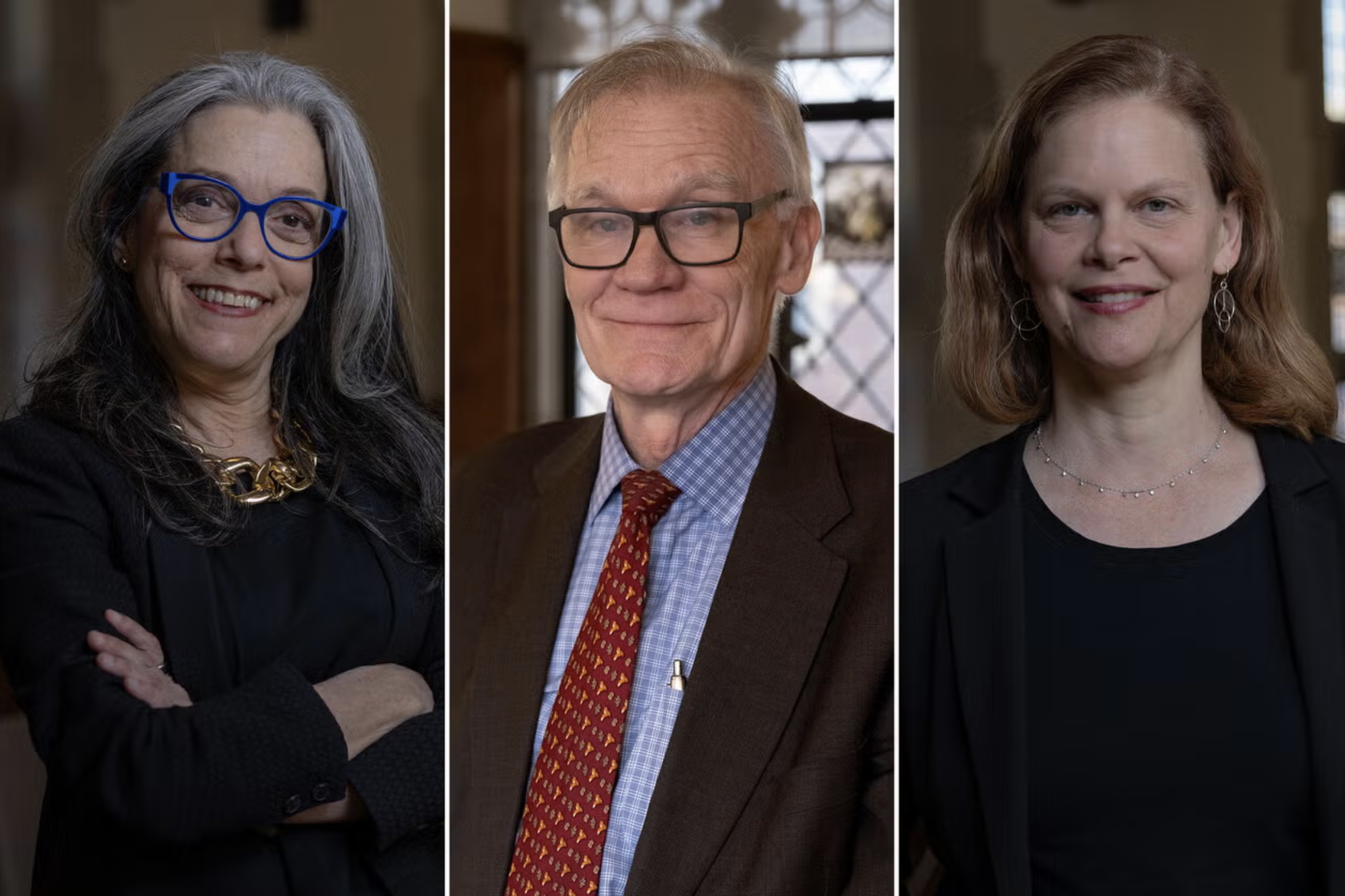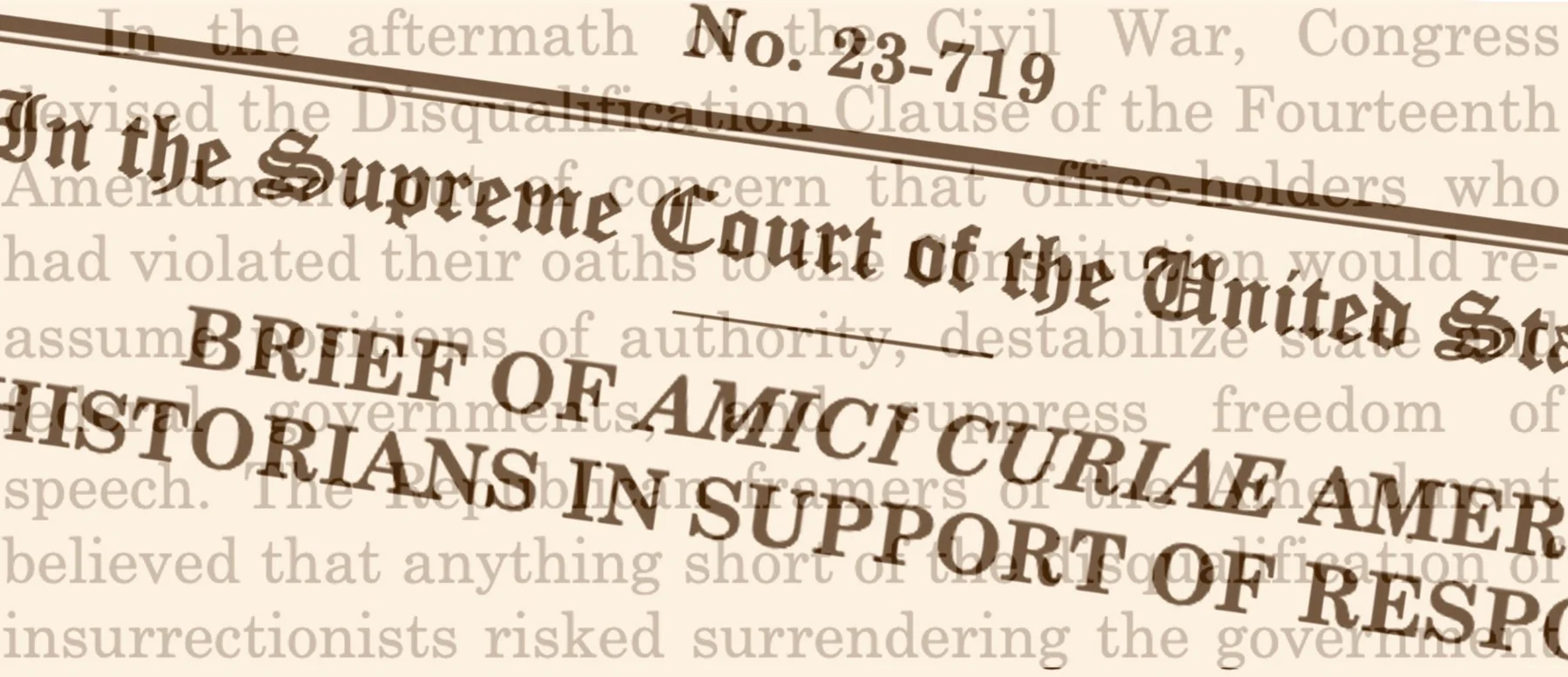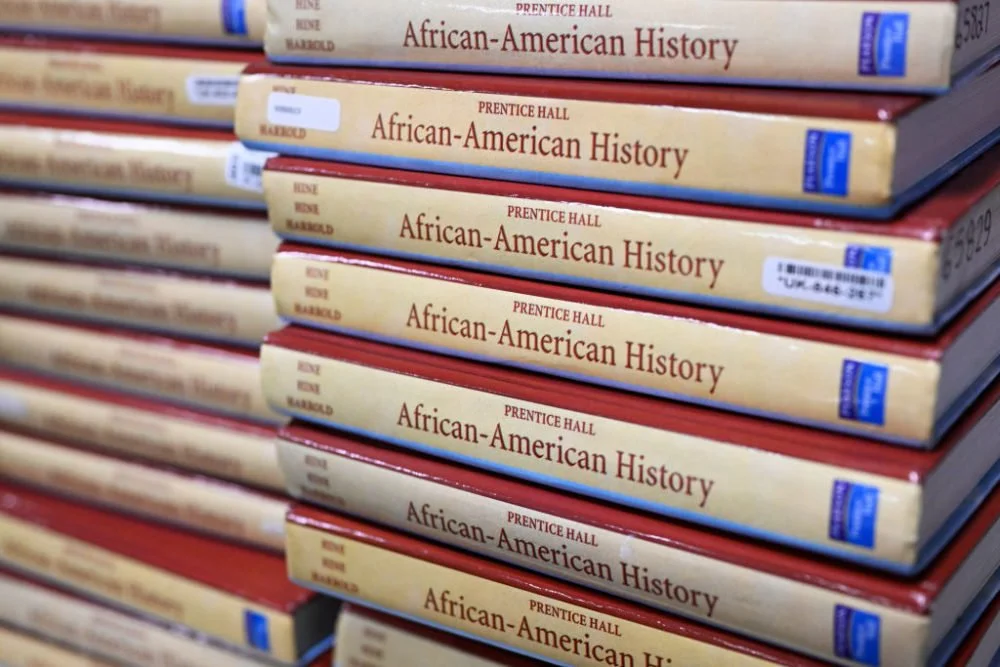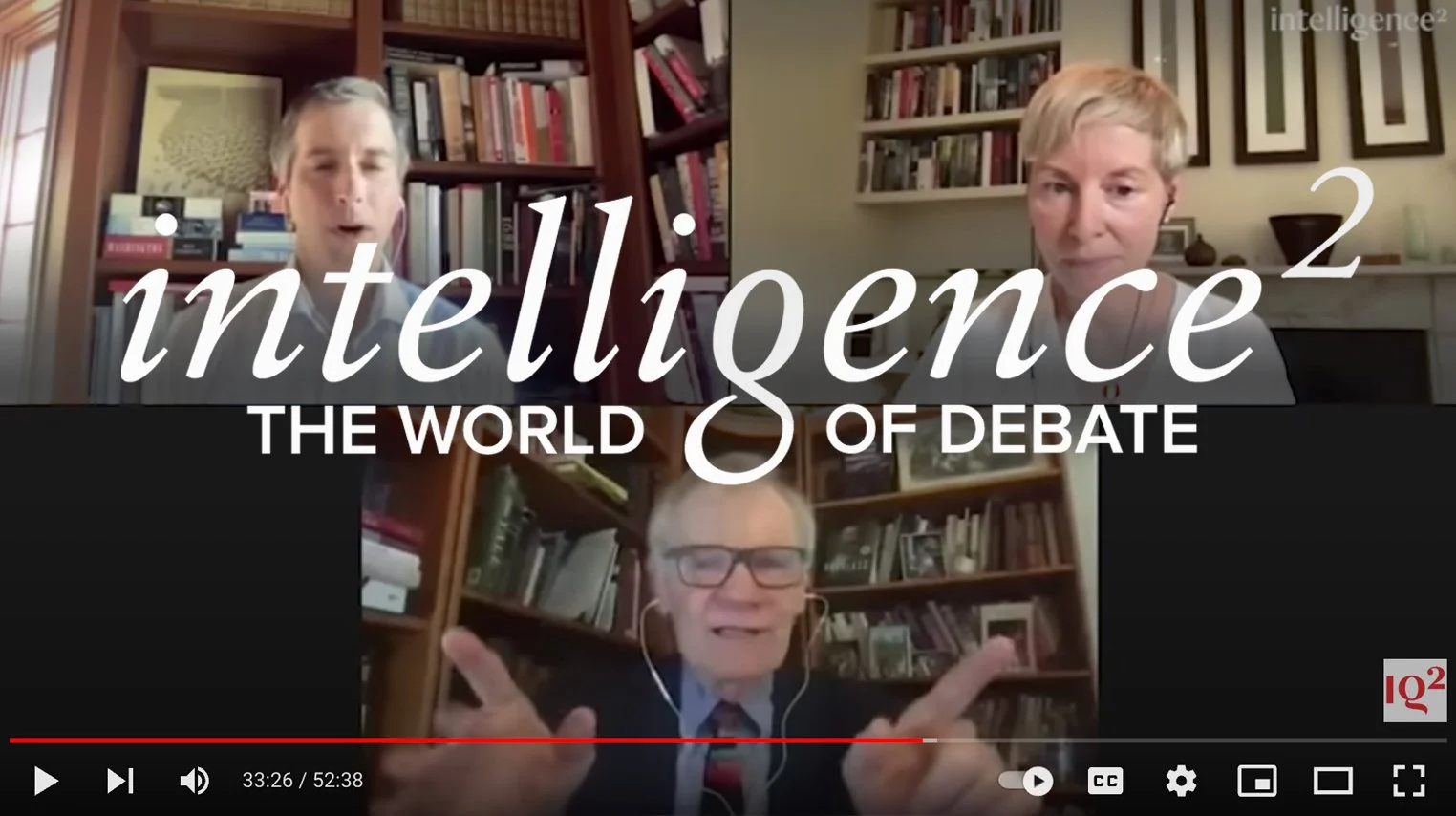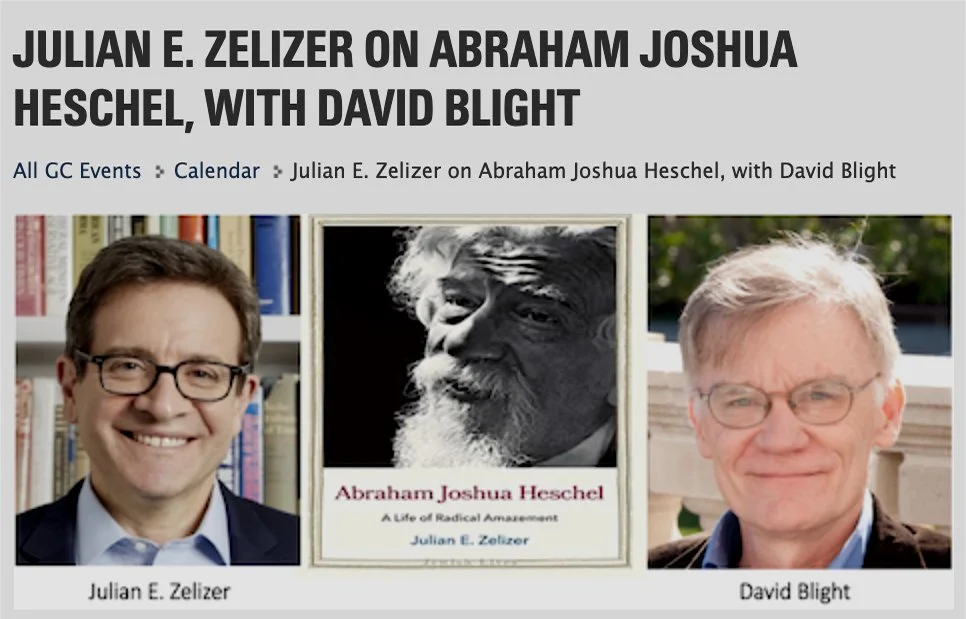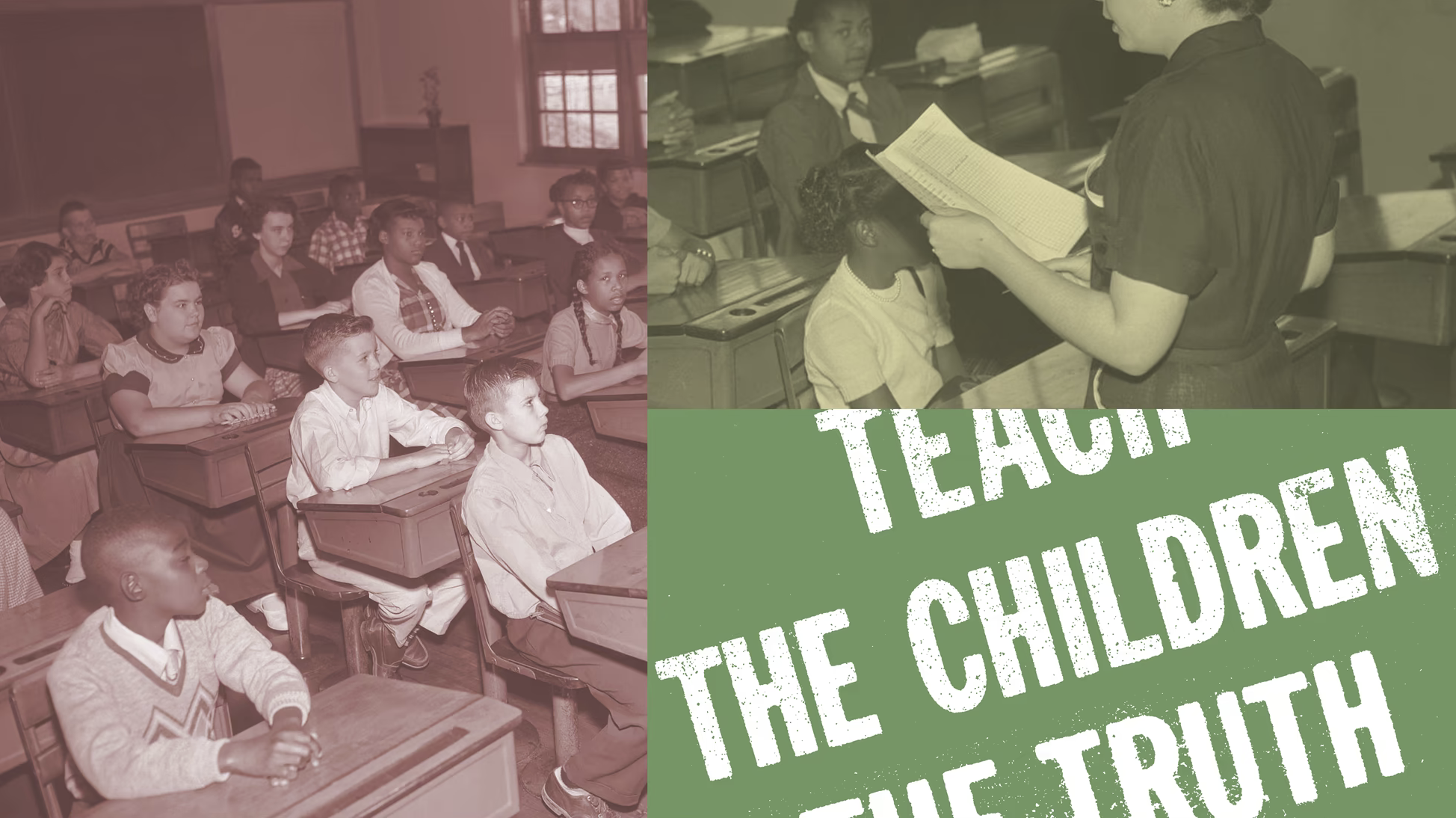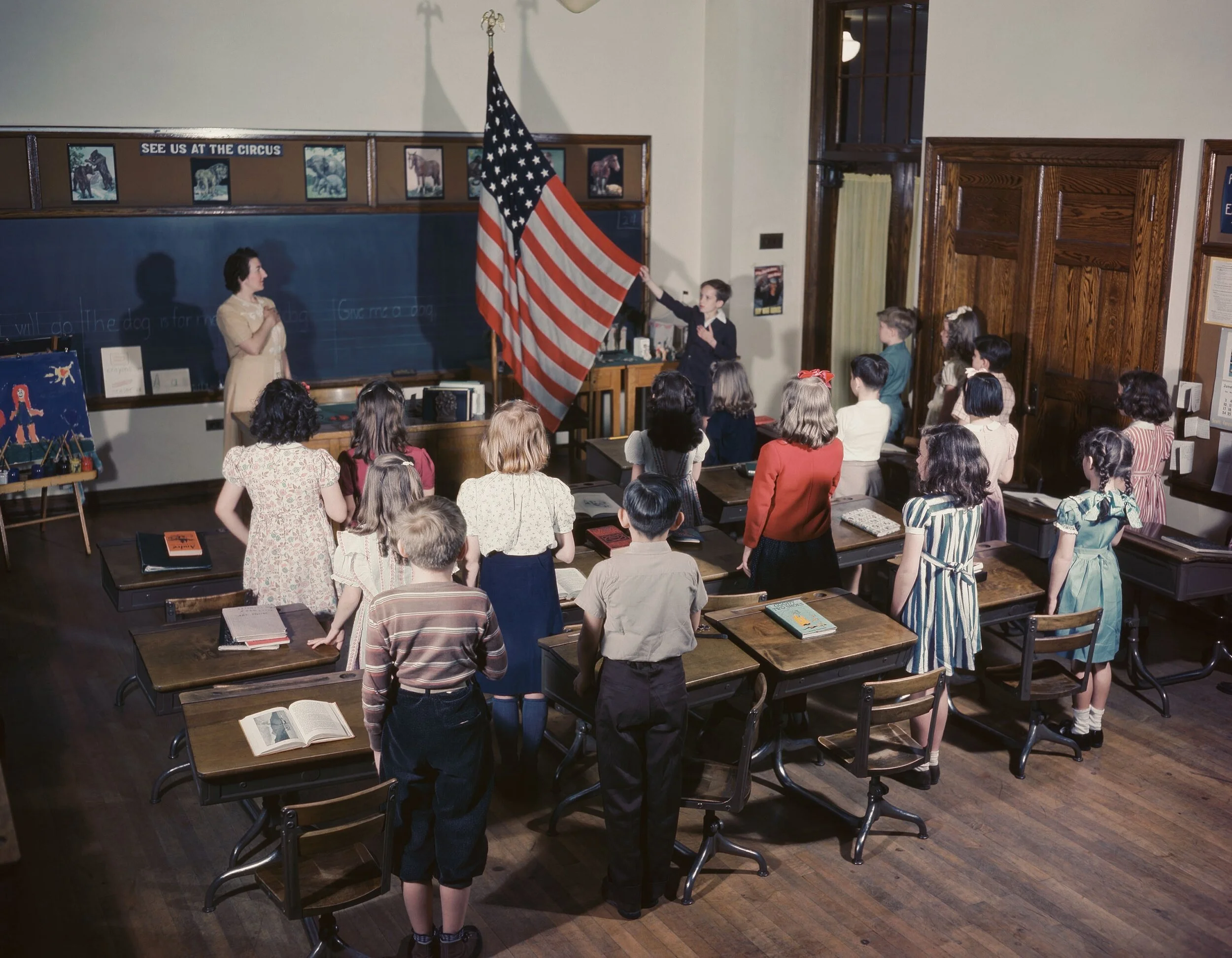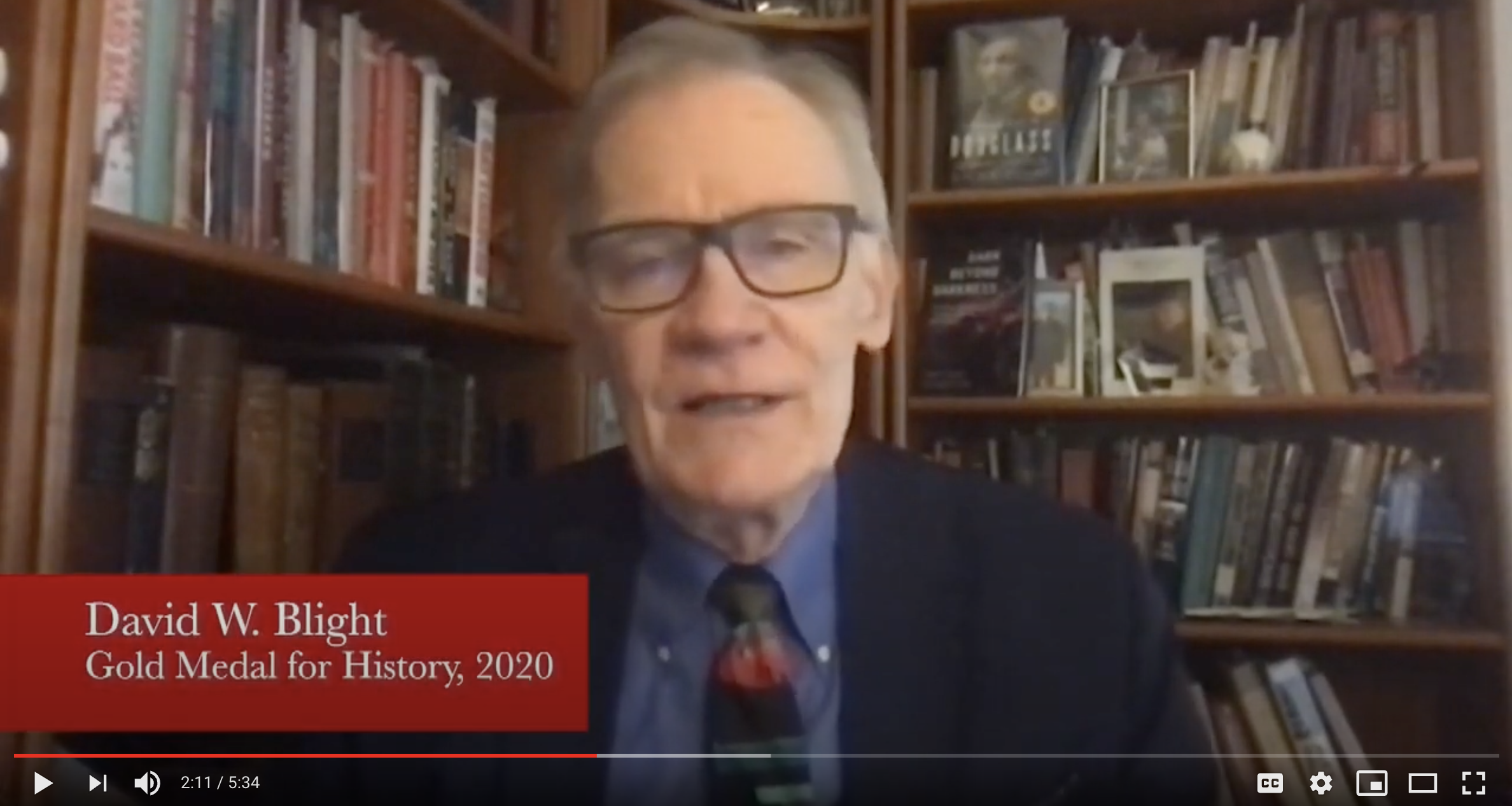Today marks the 163rd anniversary of Antietam. Those who say they’re ready for civil war should stop and think about what happened there.
So, you say you want a “civil war”? In the wake of the murder of Charlie Kirk, Republican elected officials and members of the Trump administration have led or followed denizens of right-wing social media in using the language of “civil war” to respond to what they immediately deemed an attack by the “radical left.”
Three esteemed Yale historians are teaming up this fall to teach “America at 250: A History” as part of the 2025 DeVane Lecture course, an annual lecture series that is open to the public at no charge.
David Blight, Joanne Freeman, and Beverly Gage, all professors in the Department of History in Yale’s Faculty of Arts and Sciences, will explore a wide range of topics in advance of the nation’s 250th birthday in 2026.
In the video above, watch as they discuss what they’re looking forward to the most. All lectures will be made available to view on Yale YouTube for free starting in mid-September.
Pulitzer Prize-winning historian and author of biography Frederick Douglass: Prophet of Freedom, David W. Blight, answers the call to investigate Yale University’s historical involvement with the slave trade and abolition. His findings take the form of a compelling narrative account of the role of slavery in the university’s past, based on the premise that the history of Yale is aligned with the history of the United States, and therefore American slavery. He considers the implications of his findings with Richard Brodhead, former Dean of Yale College and Emeritus President of Duke University.
View conversation: https://www.youtube.com/watch?v=d96JI7pVg_s
Pulitzer-winning historian Dr. David Blight returns to talk with Court Accountability Action’s Lisa Graves about his recent commencement speech at Michigan State University, where he said, “history never takes a day off, and when you are least expecting it comes for you. History is coming for you right now.” Dr. Blight, Lisa, and Alex talk about the Trump administration’s assaults on history, universities, and the public education system.
View MeidasTouch podcast: https://www.youtube.com/watch?v=5HnCBqka3Z0
Watch Blight MSU commencement speech (begins at 27:19): https://video.wkar.org/video/college-of-social-science-spring-2025-bhsawk/
This fall, three eminent scholars of U.S. history will explore the nature of American identity in a semester-long series of lectures open to the public.
On Thursday President Trump issued an executive order, Restoring Truth and Sanity to American History.
In Mr. Trump’s customary bluster, the order bursts with accusations against unnamed people who are presumably my fellow historians and museum curators for our “concerted and widespread effort to rewrite our nation’s history.”
The Trump Administration is fighting to detain and deport Cornell student activist Momodou Taal. Taal’s attorneys, Eric Lee and Chris Godshall-Bennett, have a warning about other foreign students they say are being targeted across the country. President Trump says he wants to remove "improper ideology" from our nation's top historical and cultural institution, the Smithsonian. Pulitzer-prize winning historian of African American history, David W. Blight, explains why he thinks this is “a political declaration of war.”
View video: https://f.io/9t2sM5sA
Government controls over classroom discussion proposed by Ohio Senate Bill 1 are more fitting to the Soviet Union than the United States of America
We write to oppose the proposed Ohio Senate Bill 1 higher education overhaul, which is currently under consideration in the Ohio legislature. We are historians of the American past and U. S. citizens who value our country.
Commentary from the heads of two prominent historical associations on Trump’s recent executive order on “radical indoctrination” in schools.
Under the grossly misleading title “Ending Radical Indoctrination in K-12 Schooling,” the White House last week issued an executive order that would undermine the integrity of writing and teaching of American history. The order uses ideological litmus tests to define for teachers and students what is acceptable and unacceptable American history. Historians, and all who teach and care about the American past at historic sites, in museums, libraries, publishing, and in social studies and history classrooms should loudly protest this incursion into our schools, our writing, and our minds.
The attack on it is a violation of the nation’s post–Civil War rebirth.
The attempt to end birthright citizenship in the United States is an attempt to reverse history, to push our nation back, way back, before the Dred Scott decision of 1857 and the secession crisis that soon delivered the nation into the Civil War. Calling this action “unconstitutional” is utterly inadequate; the maneuver is the soiling of sacred text with profane lies.
Making Kamala Harris the president right now would send a powerful message of unity to defeat the poison of MAGA.
Fellow citizens: In the face of our current electoral crisis, revisit Abraham Lincoln’s famous “House Divided” speech. Breathe in the beautiful prose poetry of the first page, but also read the substance and argument of the next six pages. On June 16, 1858, from the Old State House in Springfield, Illinois, the then-former one-term congressman announced his candidacy for the United States Senate against the incumbent Democrat, Stephen A. Douglas, with whom he differed fundamentally on the future of slavery in America.
Six members of the Yale faculty were named recipients of Yale College’s teaching prizes, which recognize exceptional undergraduate teaching.
The prizewinning teachers, all from Yale’s Faculty of Arts and Sciences, are David Blight, Sterling Professor of History and African American Studies; Sarah Demers, professor of physics; John Lafferty, the John C. Malone Professor of Statistics & Data Science; Adriane Steinacker, senior lecturer in Physics; Margherita Tortora, senior lector II in Spanish; and Carlos Eire, the T. Lawrason Riggs Professor of History and Religious Studies.
A blog by Stan Deaton | Podcast S7E11: David Blight on Yale and Slavery, History and Memory
How do we hold institutions accountable for the sins of the past? In this podcast, Pulitzer Prize-winning historian David Blight of Yale University talks with Stan about his latest book, Yale and Slavery: A History, and how he and a team of researchers uncovered Yale’s historical involvement with slavery, the slave trade, abolition, and Jim Crow—and the important role that slavery played in the creation of one of America’s most renowned institutions of higher learning.
Listen to the podcast: https://www.deatonpath.georgiahistory.com/podcast-s7e11-david-blight-on-yale-and-slavery-history-and-memory/
Oral arguments for the US Supreme Court case Trump v. Anderson are scheduled for February 8, 2024. At issue is the Colorado Supreme Court order excluding former President Donald Trump from the 2024 presidential primary ballot in the state of Colorado. Two Yale professors, David W. Blight and Professor John Fabian Witt, joined Harvard professors Jill Lepore and Drew Gilpin Faust in submitting an Amici Curiae brief to the United States Supreme Court regarding this case.
On Jan. 6, 2021, former President Trump, the loser of the 2020 election, famously addressed a gathering of followers who then joined the mob that attacked the U.S. Capitol. While rambling and incoherent, Trump’s speech nonetheless made a few things clear: Leftists had conspired to steal the election by fraud, and the mobs summoned to Washington on his behalf would need to “stand strong.” The implication was that violence might be necessary, because “you’ll never take back our country with weakness.”
In 1866, the famous abolitionist laid out his vision for radically reshaping America in the pages of The Atlantic.
In his third autobiography, Life and Times of Frederick Douglass, while reflecting on the end of the Civil War, Douglass admitted that “a strange and, perhaps, perverse feeling came over me.” Great joy over the ending of slavery, he wrote, was at times “tinged with a feeling of sadness. I felt I had reached the end of the noblest and best part of my life; my school was broken up, my church disbanded, and the beloved congregation dispersed, never to come together again.”
Yale University professor David Blight discussed a series of short biographies from Yale University Press that illustrate the concept of African American identity. About Books also reported on the latest publishing industry news and current non-fiction books.
View video: https://www.c-span.org/video/?527285-1/books-yale-university-press-black-lives-series
Listen to podcast: https://www.c-span.org/podcasts/subpage/?series=aboutbooks&episode=a761813e-da2c-11ed-9317-4fdf2ebf5de2
American classrooms have been thrust into the debate about race and our country’s history.
"This notion that somehow history is supposed to be employed to make people feel good, it's disturbing, but it is for some people," David Blight says. "It's what's at stake here."
How should educators be teaching the history of slavery?
"We have to have an honest history that is honest all the way through, even as it is also cultivating civic bonds and civic connections," Danielle Allen says.
NPR On Point podcast episode featuring David Bight and Danielle Allen.
Listen to the podcast: https://www.wbur.org/onpoint/2023/02/22/how-american-educators-can-better-teach-the-history-of-slavery
A historian of the conflict traces the path to disunion in the 1850s — and the lessons it holds for our own era of deep division.
In the late morning of March 6, 1857, two days after the inauguration of James Buchanan as the 15th president of the United States, the Supreme Court’s chief justice, Roger B. Taney, stood among a crowd of reporters and spectators on the ground floor of the United States Capitol and formally read the 55-page majority opinion in Dred Scott v. John F.A. Sandford. Born during the American Revolution and now just shy of 80, Taney could still take over a room with his sense of conviction, and as he began to address the crowd, the old Supreme Court chamber brimmed with anticipation.
Should Donald Trump be prosecuted by the DOJ for crimes against the United States? Last week the FBI searched former President Donald J. Trump's home Mar-a-Lago in Palm Beach, Florida with a warrant stating that he was under investigation for potential breaches of the Espionage Act. The move deeply angered Trump, his supporters, and signaled a major escalation of the investigations into January 6 and the final stages of Trump's presidency.
View video: https://www.youtube.com/watch?v=shG2Gh5Tm4Q
David Blight, CJ Hunt, Nikyatu Jusu, and Viet Thanh Nguyen joined moderator Kimberlé W. Crenshaw, legal scholar and civil rights advocate, at the Sundance Film Festival for a conversation interrogating how censorship, legislation, and storytelling are creating a distorted national narrative, and the crucial role of new cinematic genres in challenging these myths.
View video: https://www.youtube.com/watch?v=LTqwAseP-I8&t=107s
“When I marched in Selma, I felt my legs were praying.” So said Polish-born American rabbi Abraham Joshua Heschel (1907–1972) of his involvement in the 1965 Selma civil rights march alongside Martin Luther King Jr. Heschel, who spoke with a fiery moralistic fervor, dedicated his career to the struggle to improve the human condition through faith.
View video: https://www.youtube.com/watch?v=hCoyQb3yQtE
The lie that the election was ‘stolen’ from Trump is building its monuments in ludicrous stories, and codifying them in laws to make the next elections easier to pilfer.
American democracy is in peril and nearly everyone paying attention is trying to find the best way to say so. Should we in the intellectual classes position our warnings in satire, in jeremiads, in social scientific data, in historical analogy, in philosophical wisdom we glean from so many who have instructed us about the violence and authoritarianism of the 20th century? Or should we just scream after our holiday naps?
Here’s what parents need to understand about the teaching of history.
Every effective American teacher seeks the trust of society, of parents, and of the young people they teach. Public education as a whole depends on these bonds of trust. Our divisive politics regarding how to teach children about slavery, race, and other difficult subjects in school has broken that trust.
Anyone who has ever taught for one day knows that trust must be earned. Facing a classroom full of 14- or 16-year-olds with varying degrees of attention and preparation on any subject is one of the hardest and most important of all professions.
Both race in the classroom and the New York Times’s 1619 Project have been the subject of recent state legislative efforts, heated debate, and extensive press coverage, both at Education Next (see, for example, “Critical Race Theory Collides with the Law,” legal beat, Fall 2021, and “The 1619 Project Enters American Classrooms,” features, Fall 2020) and elsewhere. The post-George Floyd racial reckoning and the new Juneteenth federal holiday have roused attention toward teaching the history of slavery in America. As part of our continuing coverage of these issues, we asked some of the nation’s foremost scholars and practitioners to respond to the prompt, “How should K–12 schools teach about slavery in America? What pitfalls should teachers and textbooks avoid? What facts and concepts should they stress? Are schools generally doing a good or bad job of this now?”
Historians David Blight and Gaines Foster wrote an amicus brief to the Virginia Supreme Court supporting the motion to remove the Robert E. Lee statue on Monument Avenue in Richmond. On September 2, 2021, the Court unanimously ruled that the state had the authority to remove the statue, and on Wednesday, September 8, the statue was taken down.
David Blight, Sterling Professor of History at Yale University, who served as an advisor to the team of curators at the 9/11 Memorial and Museum, and Peter Salovey, Yale University President, discuss commemorating tremendous loss, the purpose of memorialization, and teaching complex history.
“The Learning Curve” podcast series
Cara Candal and guest co-host Derrell Bradford of the Pioneer Institute’s “The Learning Curve” podcast series, talk with David Blight, Sterling Professor of American History and director of the Gilder Lehrman Center for the Study of Slavery, Resistance, and Abolition at Yale University. Blight shares what drew him as a teenager in Flint, Michigan to the study of America’s past, and to Douglass in particular. He explains the role of Walter O. Evans, to whom he dedicated the book.
Listen to the podcast: https://pioneerinstitute.org/civil-rights-education/yales-pulitzer-winning-prof-david-blight-on-frederick-douglass-slavery-emancipation/
A new battle is being waged over how we teach our country’s past. But old feuds remind us that history is continually revised, driven by new evidence and present-day imperatives.
Once again, Americans find themselves at war over their history—what it is, who owns it, how it should be interpreted and taught. In April, the Department of Education called for a renewed stress, in the classroom, on the “unbearable human costs of systemic racism” and the “consequences of slavery.” In response, Senate Minority Leader Mitch McConnell issued a formal letter, demanding more “patriotism” in history and calling the Democrats’ plan “divisive nonsense.” Like all great questions of national memory, the latest history war has to play out in politics, whether we like it or not. This is especially true as we limp, wounded, from the battlefields of the Trump era, when facts were nearly rendered irrelevant.
The American Academy of Arts and Letters has announced the recipients of its highest honors for excellence in the arts. David W. Blight has been awarded the Gold Medal for History. The Gold Medal is awarded to those who have achieved eminence in an entire body of work.
View a clip of the award ceremony: https://youtu.be/a8BtzybfGyE

